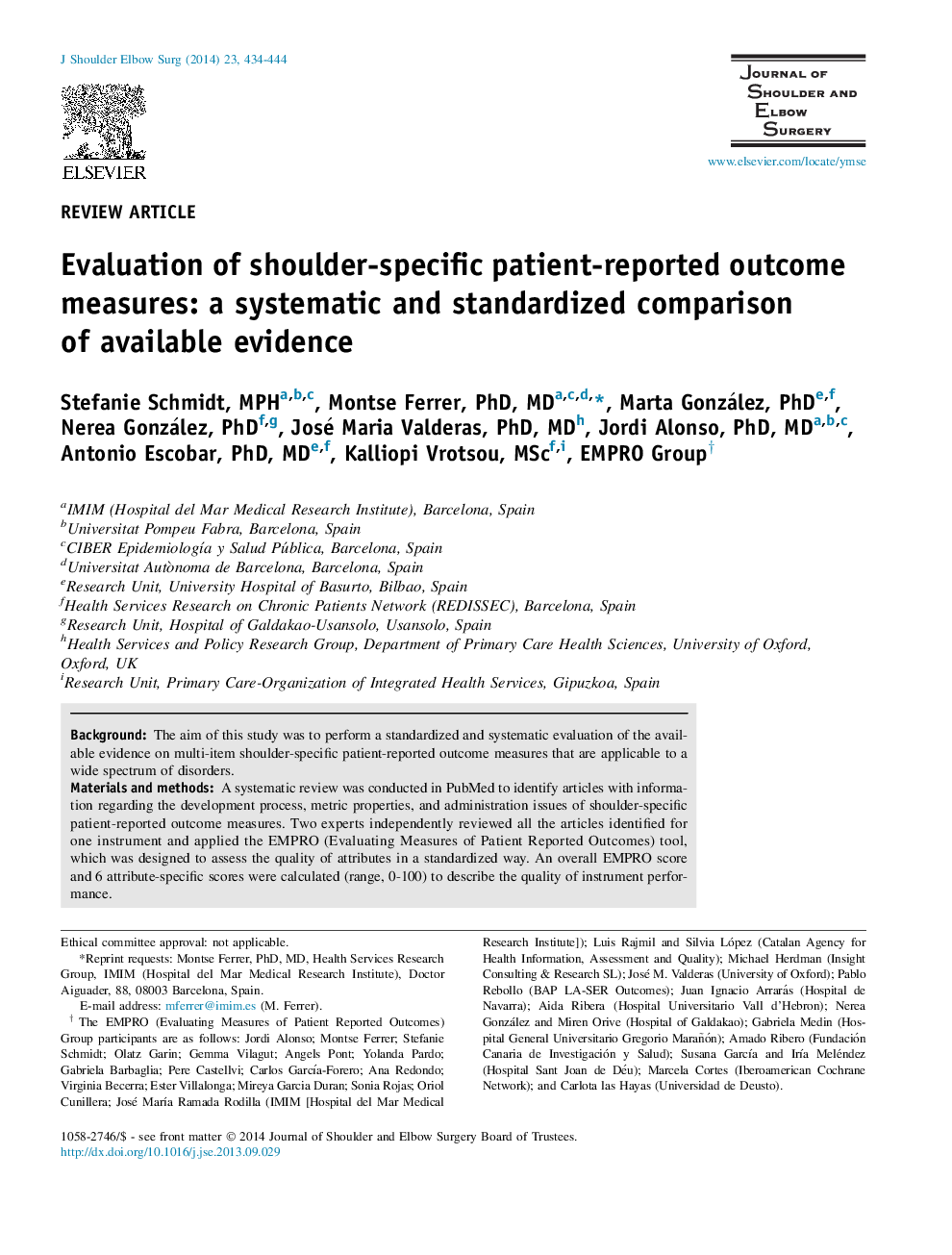| کد مقاله | کد نشریه | سال انتشار | مقاله انگلیسی | نسخه تمام متن |
|---|---|---|---|---|
| 4073715 | 1266988 | 2014 | 11 صفحه PDF | دانلود رایگان |
BackgroundThe aim of this study was to perform a standardized and systematic evaluation of the available evidence on multi-item shoulder-specific patient-reported outcome measures that are applicable to a wide spectrum of disorders.Materials and methodsA systematic review was conducted in PubMed to identify articles with information regarding the development process, metric properties, and administration issues of shoulder-specific patient-reported outcome measures. Two experts independently reviewed all the articles identified for one instrument and applied the EMPRO (Evaluating Measures of Patient Reported Outcomes) tool, which was designed to assess the quality of attributes in a standardized way. An overall EMPRO score and 6 attribute-specific scores were calculated (range, 0-100) to describe the quality of instrument performance.ResultsWe identified 11 instruments and 112 articles (2-30 articles per instrument). The American Shoulder and Elbow Surgeons (ASES) shoulder assessment, Simple Shoulder Test (SST), and Oxford Shoulder Score (OSS) were the best rated, with overall scores of 77.4 points, 72.6 points, and 69.7 points, respectively. They have been shown to be valid, reliable, and responsive, with a low administration burden. Acceptable results were also found for the Flexilevel Scale of Shoulder Function, Shoulder Pain and Disability Index, and Dutch Shoulder Disability Questionnaire, but some of their attributes need further evaluation.ConclusionsCurrent evidence supports the use of the ASES, SST, or OSS. We recommend the SST for longitudinal studies or clinical trials, the Dutch Shoulder Disability Questionnaire for clinical practice to minimize administration burden, and the ASES or OSS to discriminate among patients' or groups' evaluations at one point of time.
Journal: Journal of Shoulder and Elbow Surgery - Volume 23, Issue 3, March 2014, Pages 434–444
